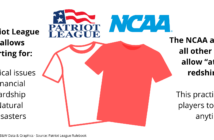The College of Health recently opened its Institute of Indigenous Studies, which is led by professors Christine Daley and Sean Daley.
The Institute of Indigenous Studies plans to bring more opportunities for students at Lehigh to learn about and engage with Indigenous communities.
Both Christine Daley and Sean Daley ran centers that focused on the study of Native American communities in Kansas. They came to Lehigh with eight of their research assistants to found the institute.
Sean Daley is directing the institute at Lehigh and said he has hopes of providing more programs for students to learn about the health and culture of Indigenous people, both locally and internationally.
The institute will be creating a minor in Indigenous peoples’ health at the College of Health. There will also be virtual events this semester on the topic of Indigenous health. The institute plans to have a work-study opportunity for students to work with Indigenous communities in the area as well.
Beyond local involvement, Sean Daley and his co-workers at the institute are forming internship opportunities to learn about Indigenous groups abroad once travel is permitted.
“There’s a lot of opportunities out there to work with Indigenous peoples, be it (in) North America, Central America, South America, wherever,” Sean Daley said. “And that was one of the things we wanted to do at Lehigh.”
When starting the institute, Sean Daley said he was most excited about the chance to work with Lehigh students who are passionate about his field.
“Lehigh has amazing programs all over the world,” Sean Daley said. “One thing they really lacked traditionally is programs with native people. To be able to work with students who are that motivated and want to do this stuff helps us up our game.”
Eduardo Gomez, a professor in the College of Health, said he is looking forward to the institute giving more funding for research and attracting more scholars from the U.S. and Indigenous communities abroad.
He said founding the Institute of Indigenous Studies is significant for the College of Health because it’s a necessity for people to start investigating the health of Indigenous communities.
“The Indigenous community, of course, has had several challenges and we need to really put our best minds, our best students, and researchers to tackle the multiple determinants of health in these communities here and internationally,” Gomez said.
The research team brought by both Christine Daley and Sean Daley is one of the only all-native research teams and one of the largest. Justin Begaye and Luke Swimmer are both a part of this team as research assistants.
Begaye said he thinks it’s important to have an institute like this at every university but in particular at Lehigh.
“I’m glad that they decided to do that because Lehigh does sit on indigenous land like many universities do,” Swimmer said.
Considering the tense history the U.S. has with Indigenous communities, the institute plans to properly educate the students at Lehigh on the pervasive issues concerning Indigenous culture and health.
“I think there’s a level of discomfort around Indigenous topics, I think because of that, it’s something people avoid,” Sean Daley said. “The reality is we, the United States, when it comes to Indigenous people at least — Indigenous people are still part of the colonialistic process. Colonialism has not died when it comes to native people, it’s still an ongoing process.”






Comment policy
Comments posted to The Brown and White website are reviewed by a moderator before being approved. Incendiary speech or harassing language, including comments targeted at individuals, may be deemed unacceptable and not published. Spam and other soliciting will also be declined.
The Brown and White also reserves the right to not publish entirely anonymous comments.
1 Comment
So – I still don’t get why this is here.
The Daleys had a serious, long-running, and well-funded research program going in Kansas, where they and their colleagues provided services for and did scholarship with indigenous populations. There is no obvious reason why such people would leave a thriving program and come to a place *that has not had tribes in over a hundred years* to take up their research again. Usually long-tenured academics do that kind of up-sticks only in a few circumstances:
– pressing family or health reasons
– they’ve made such enemies at their old place that nobody will work with them and they either can’t get funding or can’t find people to help them do the projects locally, so they find some sucker to take them on fresh
– they believe they should’ve been paid way more or given higher-ranked or more prestigious spots and nobody else agreed, and they found someone else who would; they went back to their bosses at the old place and said “look, will you match their offer” and the bosses said “nope, smell ya later.”
I don’t know how to stress this enough: their research, worthy as it is, doesn’t make sense here. There are lots of existing nonwhite populations in the LV and region that do very much need attention in public health. Tribes of the distant Pennsylvanian past are not among them. Nor do I see how this fits in with the informatics-and-biz-of-healthcare focus of much of the rest of this new college. Nor, frankly, does Gomez’s wash make a lot of sense: indigenous health is a vast global field and you don’t walk in and say oh, well, we’ll just do all of it from here, or some big part, I mean you could go anywhere, really. Science requires specialization and expertise, and this kind also requires serious ethnographic understanding of particular people in particular places, which the Daleys seem to have had in their old spot. I don’t see anything that says they’re set up to be global pan-indigenous public health researchers. Maybe this is a way of making (expensive) lemonade out of the situation, but again, in the absence of obvious opportunity, it looks like a pretty good reach for this new College.
It sounds to me like the Daleys responded to an overbroad call, someone here was excited about all their NIH funding and a DEI tickbox and recruited them hard, they were promised the sun and the moon, and then they got here and found out that this new College was not at all what they were thinking, because they had no experience with Lehigh-type places: it’s very much a Lehigh biz-eng-sci-oriented sort of thing. And they freaked out and saw their careers going to an early grave, and shortly afterwards, the new Dean that Lehigh recruited from industry was out, and the Daleys were working B&W staff hard in a totally bizarre and radically uncollegial turn, looking for public sympathy and probably persuading most of Lehigh’s faculty to stay far away. That’s the best guess I can make short of B&W staff suddenly getting way more savvy than any students can be expected to be about faculty/admin internal politics and reporting. However this ends, though, I don’t see it ending inexpensively for Lehigh.
From very far away and the outside, what this looks like is administrators’ not taking the trouble to really understand the fields they wanted to bring to Lehigh and understand what this new College was really going to be all about, also where it could fit into the public-health/health-sci/health-tech-biz regional higher ed landscape. So they punted to a new dean coming mainly from industry, like industry is magic, instead of recognizing that if you’re building something in higher ed, you want someone who actually understands higher ed. (And you also don’t want someone from English as your interim of an expensive new public-health college.) Then here came these people who ticked a DEI sort of box, but in a weird way, but nobody cared because the box been ticked.
Maybe it’s not that. But I do see this over and over, at school after school, where higher ed managers believe firmly that they don’t actually have to get into nitty-gritty and understand what they’re throwing money at. Then the thing doesn’t work, and guess who pays for it? You. What’s COA now? 77K dollarinos a year?
Stop and take the time to understand the investment before you pull the trigger. I know this isn’t how it’s done at Oak Piglets Capital or whatever it is that Kevin was running. But if you don’t want to waste other people’s money, stop and take the time to understand the investment first.